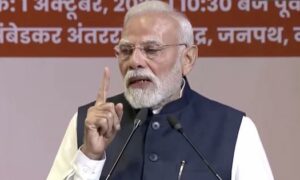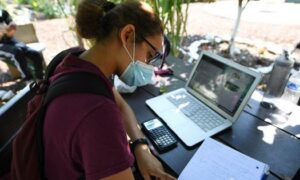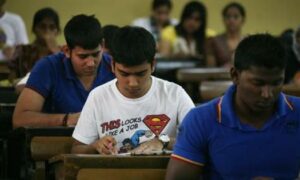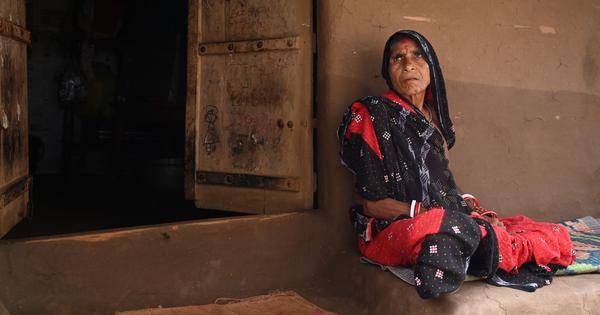
Rows of nondescript houses, some left half-built and some still under construction, are neatly spread out in Bagapatia in Odisha’s Kendrapara district. Since 2018, the village has been home to 571 families that were moved here as the Bay of Bengal began to inundate their old homes in Satabhaya village. This makes Bagapatia India’s first rehabilitation settlement for people displaced by coastal erosion.
It had rained the day before when we visited in June and the roads had muddy puddles of water. When we reached Malati Baral’s house, her four grandchildren were prancing around. “Every time it rains, we have water all around,” said 62-year-old Baral. “At times, our houses are flooded.”
Waterlogging is only one problem Baral faces. In their old village, she said, the family caught their own fish and grew their own vegetables. But Bagapatia is 12 km inland. Besides, the 10 decimals of land that each displaced family received – an area a little smaller than a basketball court – is uncultivable.
Though the government gives the family 20 kgs of rice each month, it is not enough to feed her household of seven.
Baral, who was married when she was only 12, had spent 50 years in Satabhaya village, a cluster of seven villages sprawled across 875.16 acres along 12 km of the Bay of Bengal. Her days had been occupied with farming, fishing and collecting wood from the forest. “We were happy in Satabhaya, our old village,” she said.
A few months after the family moved, her two sons and one daughter-in-law left for Kerala to work as construction labourers because there was no way to make a living in their new village. It is estimated that 80% of the men from the village now work in states such as Kerala, Karnataka and Gujarat, leaving behind the women, elderly and the children.
With her children away, it fell to Baral to look after her grandchildren. She is now economically dependent on her sons.
As Baral’s responsibilities have increased, so have her stress levels. “There was no lack in Satabhaya,” she said. “Here, I am struggling financially.”
The pain of losing a familiar environment and her way of life has been exacerbated by the breaking up of the family set-up and economic pressures. Baral is not alone in suffering from trauma after being displaced by climate change. The phenomenon is so widespread, the United Nations Framework Convention on Climate Change has a pithy description for it: non-economic loss and damage.
“Non-economic losses refer to a broad range of losses that are not easily quantifiable in financial terms or commonly traded in markets,” but which hurt individuals and communities, it has said. These negative effects include loss of culture, ecosystems and displacement.
Many people affected by emergencies – climate-related or otherwise – experience feelings of anxiety, sadness, hopelessness, sleep issues, fatigue, irritability, anger or aches, says a study by the World Health Organization.
That’s reiterated by Baral’s descriptions of her new life.
Bagapatia, she said, is an “alien land” where nothing grows except their woes. The rising expenses has forced many families to turn to moneylenders to meet shortfalls of cash or to build their homes.
Even though the interest rates are punishingly high, Baral and others see this as being more convenient than borrowing from banks or self-help groups. But this leaves them in fear of debt collectors.
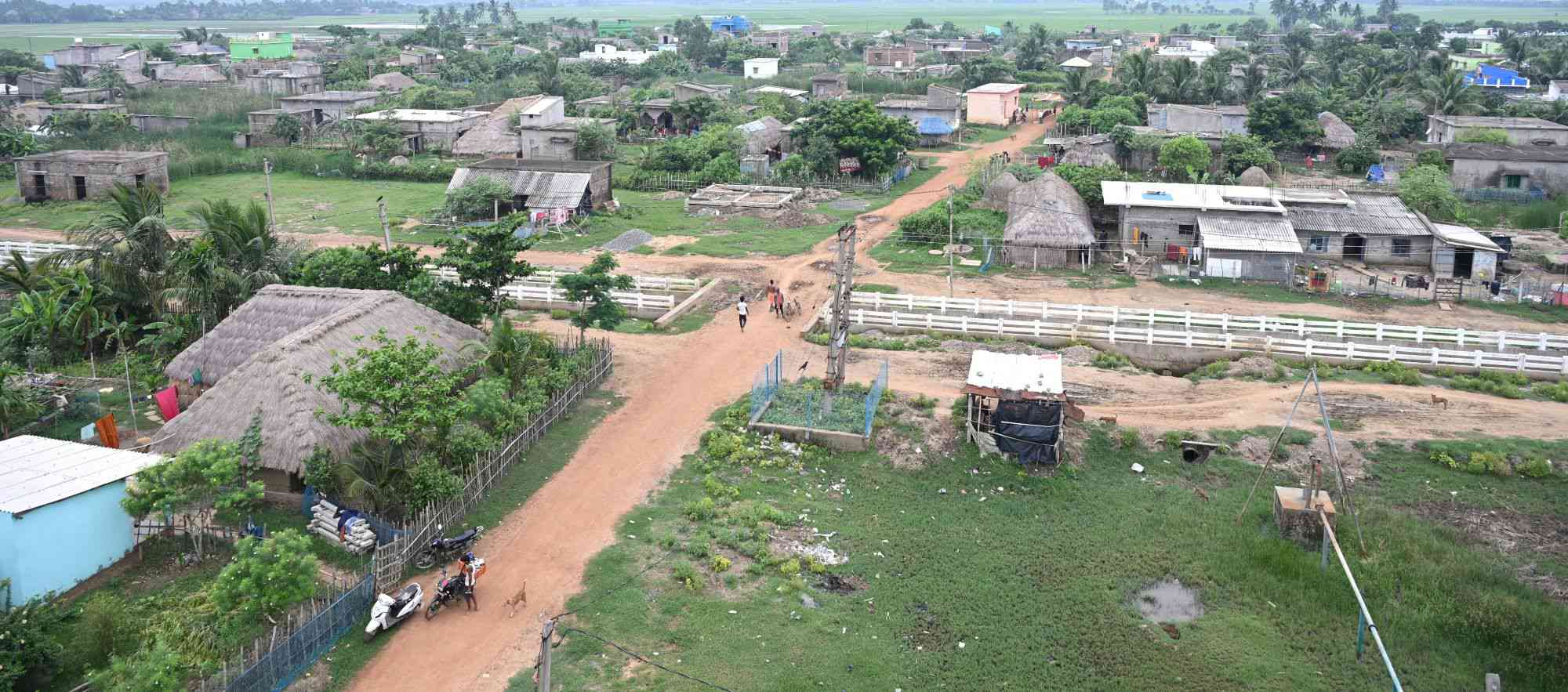
The anxiety and other emotions are also familiar to Baral’s neighbours, Jayanti Das and Promila Jena.
Psychologist Nutan Dwivedi, a faculty member in Hi-Tech Medical College and Hospital, in Odisha’s capital of Bhubaneswar, 146 km away, explains these emotions “as a state of anxiety”. If people feel emotions such as fear and anxiety all the time, it could become a mental health problem, she said.
“They require psychological first aid,” said Dwivedi.
Though men also suffer from such stress, women process trauma differently, she said. But the sense of loss in women is greater because they keep ruminating about their situation, said Dwivedi.
With this situation in mind, the Odisha State Disaster Management Authority has over the past two or three years conducted three training programmes on providing psychosocial support to those vulnerable to cyclones and floods.
These programmes, with the assistance of the National Institute of Mental Health and Neuro Sciences in Bengaluru, were aimed at trainers who will in turn conduct field-level programmes for grassroot workers in Odisha. They will teach workers at the village level to identify the symptoms of those in mental distress, provide the basic counselling and refer patients to district medical teams.
At the workshop were district project officers, district emergency officers, officials from Department of Women and Child Development, and District Child Protection Officers, district-level health officers, psychiatric social workers and clinical psychologists.
“We are going to create a pool of master trainers, who will go back and train others at the grassroot level,” said NIMHANS’s Dr Jayakumar C, Additional Professor (psychosocial support) who conducted a workshop in Bhubaneswar with his team. “We will train around 6,000 people in Odisha.”
Around 28% of Odisha’s 574.7-km coastline – 154 kms – has been affected by erosion eroded by the sea between 1990 and 2016, according to a study by the National Centre for Coastal Research in Chennai. This is the highest of any state in India.
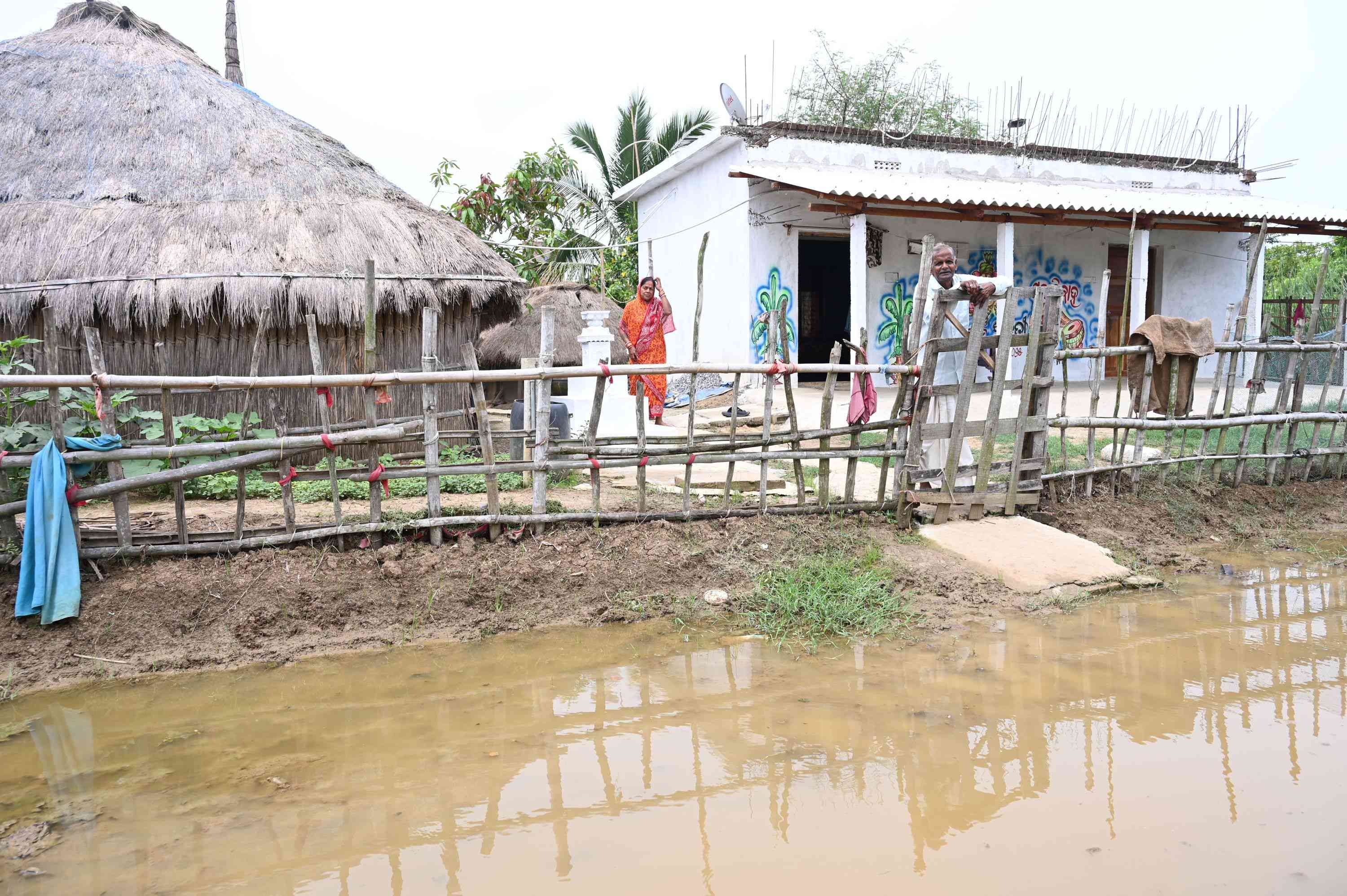
Although Bagapatia residents know how climate change has altered their lives, they are unaware about the discussions on non-economic loss and damage on the global stage.
At the United Nations’ annual climate conference, Conference of the Parties, in November 2022 to assess global efforts to address climate change and make decisions on reducing greenhouse gas emissions, a draft resolution was adopted to establish a loss and damage fund aimed at compensating developing nations for the damages caused by climate change.
But it is still unclear to policymakers how the loss of culture, heritage and traditions are to be quantified. If this loss is eventually evaluated in quantifiable terms, Bagapatia residents and others facing their predicament could perhaps receive some help.
“Non-economic loss and damage is just as critical as economic loss and damage, because unless we understand and address the cultural, social, and ecological losses, we will fail to design sustainable and holistic rehabilitation and adaptation measures that actually protect people and communities,” said Shailendra Yashwant, Senior Advisor, Communications and Advocacy at Climate Action Network South Asia, who has been attending COP negotiations regularly since 2007 and closely following the debates around the Loss and Damage Fund.
At COP 28 in Dubai the next year, countries signed an agreement to operationalise the Fund for Responding to Loss and Damage. “Just the fact that there’s an agreement on this fund is so far merely an acknowledgement, and certainly far from actual delivery,” Yashwant explained. “The fund itself is still under construction, hosted by the Philippines and housed in the World Bank, where governance, rules, and access mechanisms are all being debated.”
He added that any money that does flow will not come as blanket compensation to countries, but rather through a process of detailed project proposals.
“Communities or governments will need to bring forward specific, well-documented projects or demands – such as building cyclone shelters, restoring mangroves, or supporting displaced families,” said Yashwant. “Each proposal will be evaluated, and only then will funding be released. That’s why it is important for vulnerable countries to be prepared with clear and compelling proposals, otherwise the promise of the fund will remain on paper.”
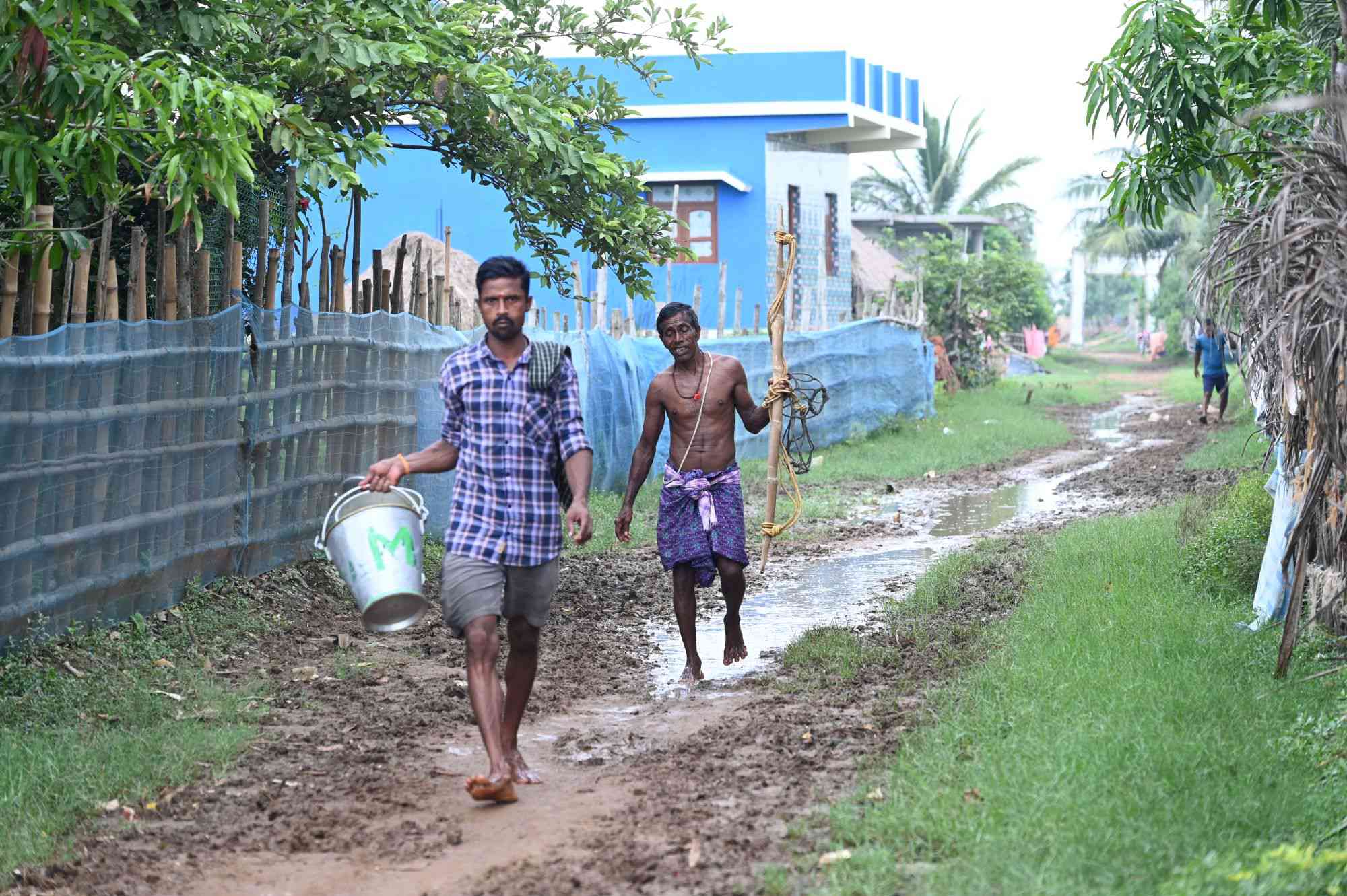
A step in the right direction
Though the annual United Nations’ climate conference has had non-economic loss and damage on its agenda every year, the discussions have not resulted in any action plans. Odisha’s psychosocial support programme actually attempts to address the problem.
A programme that started as a pilot of six districts in October 2024, has now been extended to the entire state, said Jayakumar of NIMHANS, who in 2009 helped draft the document now known as the National Disaster Management Plan.
All state governments are supposed to integrate the national plan into the State Disaster Management Plan and District Disaster Management Plan – but the overall implementation has been poor, he says.
In Bagapatia, the women residents we met had never heard of “non-economic loss and damage”, of course.
Their main concern when they shifted away from their old village was survival and their children’s future, said Malati Baral’s neighbour, Jayanti Das. “We didn’t question, we just moved,” she said.
The long discussion about their life in Bagapatia and the problems they have been facing has created a rumbling among them.
“People come and hear our stories. Nothing happens after that,” said Das.
But, still, as they dispersed, there was a twinge of hope.
“For us, any help is welcome,” Das said.
This story was produced with the support of Internews’ Earth Journalism Network.
📰 Crime Today News is proudly sponsored by DRYFRUIT & CO – A Brand by eFabby Global LLC
Design & Developed by Yes Mom Hosting

